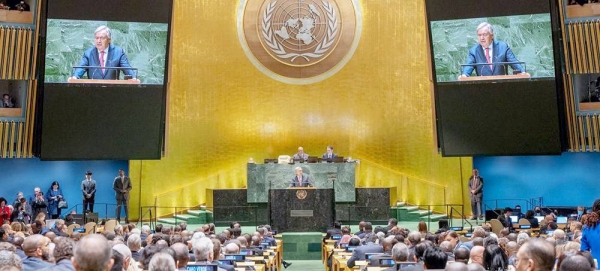
Britain’s empty high street shops and derelict department stores should be transformed into artists’ studios and galleries to bring life back to city centres, according to the outgoing director of one of the country’s leading art spaces.
With artists being pushed out of city centres by soaring rents and living costs, galleries under financial pressure and high streets struggling, Iwona Blazwick, who has led Whitechapel Gallery for more than 20 years, called on local authorities to offer the spaces at reduced rents to artists. This comes as the London gallery prepares to launch an exhibition dedicated to the subject of the artist’s studio – Blazwick’s last as director.
“It’s an interesting moment because it’s a question of whether people will want to go back to working in the city; we’ve seen one high street shop after another not surviving. High streets are struggling, whole department stores have disappeared. So what is the future for those spaces?” she said.
“And to me, there is an immediate tenancy standing right there, which is the artists’. They’re guaranteed, they’re going to bring with them a whole way of life, which brings a neighbourhood back into viability and into being a great place to live and work.”
Department stores have taken a big hit in recent years, while the move to online shopping has left many high street stalwarts struggling.
In 2016 British Home Stores closed all its UK branches; two years later, House of Fraser went into administration; Debenhams closed 118 stores after Covid hit, and John Lewis announced several closures too.
Rather than turning empty buildings into luxury apartments, Blazwick said, there is an opportunity to take inspiration from Damien Hirst, who in 1988, along with 15 other art students, “seized the moment” of a recession to stage the exhibition Freeze by opening up unused spaces to artists.
Freeze, in a Docklands warehouse, served as a launchpad for the Young British Artists (YBAs), and gave rise to a whole new art scene.
Blazwick, who in 1992 mounted Hirst’s first major solo show at a public gallery and who has been credited with discovering the artist, said there was “huge scope” for empty shops and properties to fill the gaps by being turned into galleries as Hirst did with Freeze. “That’s exactly what they did. They seized that moment of a recession and took over empty shops and properties and an entire art scene was born. There is that potential now.”
Such an initiative could harness and nurture creativity of people in rural and urban areas, she said. “We are in a post-industrial future and what we need is young people with ideas. To be creative is now the way of shaping the future and the economy.”
In London, some former factories are protected by studio associations as artists’ spaces, but long-term leases make it “harder and harder” for young artists to find affordable spaces in the capital, she said, which is why so many are moving to seaside destinations such as Whitstable, Folkestone and Hastings.
When artists get pushed out of a city, she said, “that’s when the energy leaves the city.” She added: “And as we suppress it and turn one space after another into so-called luxury flats, that is going to be destroyed. So we do have a mission here to try and persuade local authorities and developers that it has to be an intrinsic part of city planning.”
With art institutions facing “a very challenging financial horizon”, Blazwick said that they were likely to mount fewer exhibitions and to keep those that they do put on running for longer. “Where then is the platform for emerging arts or new ideas or unestablished figures?”
London, she said, was the “de facto centre of the art world”, but would lose that status if there were no studio spaces, galleries exhibiting emerging artists, or reduced art school funding: “All of that is a complex but fragile ecosystem and if we fail to invest in that, we do so at our peril. It will become a less liveable and less significant capital.”
She praised the work of artist Tracey Emin who plans to create a “revolutionary” art school in her home town of Margate, along with 30 studios for art students as well as an artist’s residency programme.
A Century of the Artist’s Studio 1920-2020, which opens at Whitechapel on 24 February, features more than 100 works by more than 80 artists and collectives including Francis Bacon, Louise Bourgeois, Barbara Hepworth, Pablo Picasso, Kerry James Marshall, Andy Warhol and Lisa Brice.
Studios, Blazwick said, act as vital “test sites” for artists, as well as places to create, take refuge and to perform. Quoting Virginia Woolf’s A Room of One’s Own, she said the studio was a place “where you can think, research, refine, try out, fail, try again, succeed.”
As well as paintings, sculptures and films documenting artists’ studios there will also be recreations of the three-dimensional surroundings of various artists’ spaces in a series of studio corners, including Warhol’s Silver Factory in New York and Kurt Schwitters’ living sculpture, the Merzbau in Hanover, which was destroyed in a British air raid in 1943.
Antony Gormley, who features in the exhibition, said that affordable studios were “essential” for young and emerging artists, arguing that these spaces should be required as part of planning applications.
“Local councils and developers should make it their duty to support creative people,” he said. “Artists are the ultimate doers and responders. They do things in their own way and recognise what has been done by others to make neighbourhoods lively, friendly and fun.”









